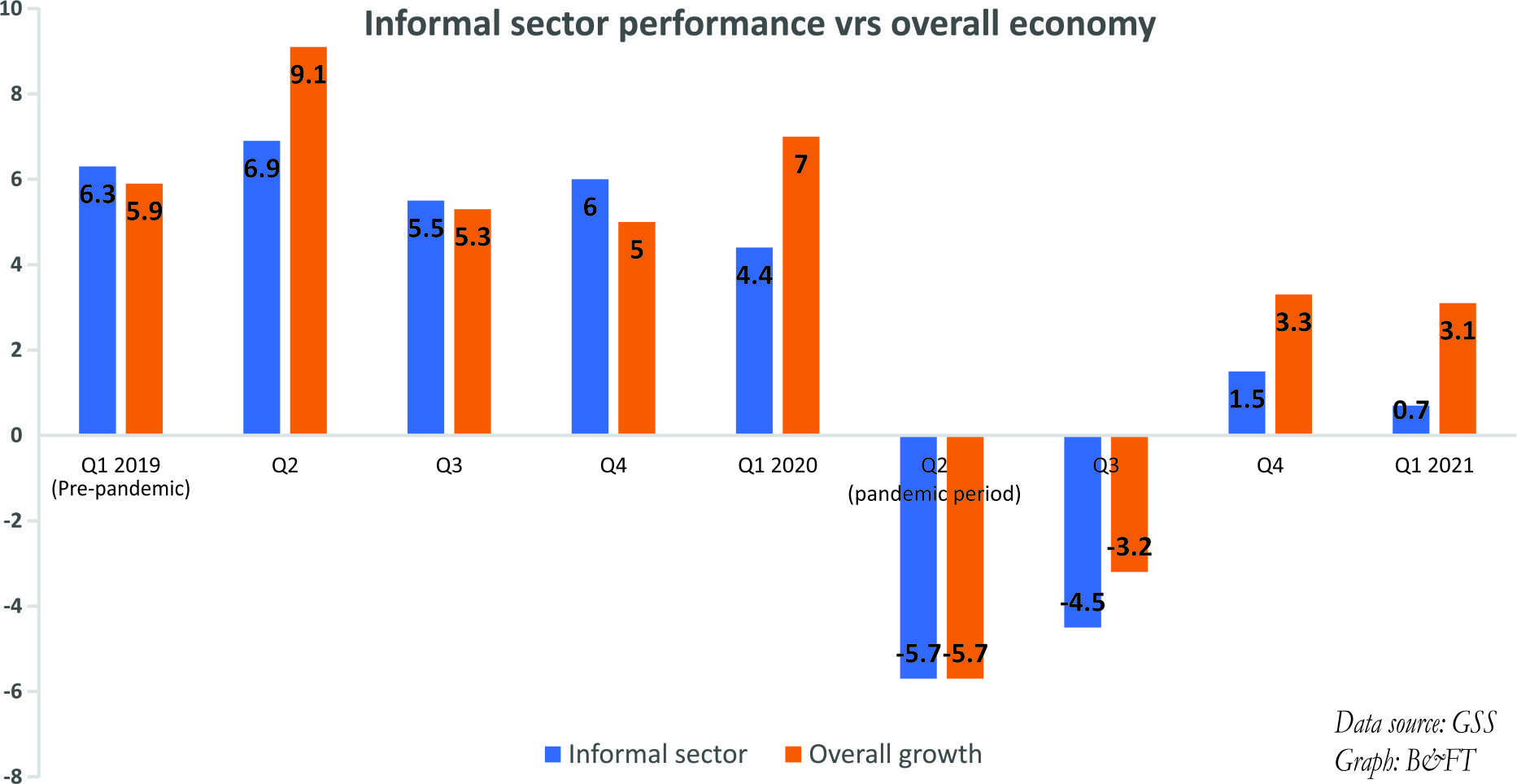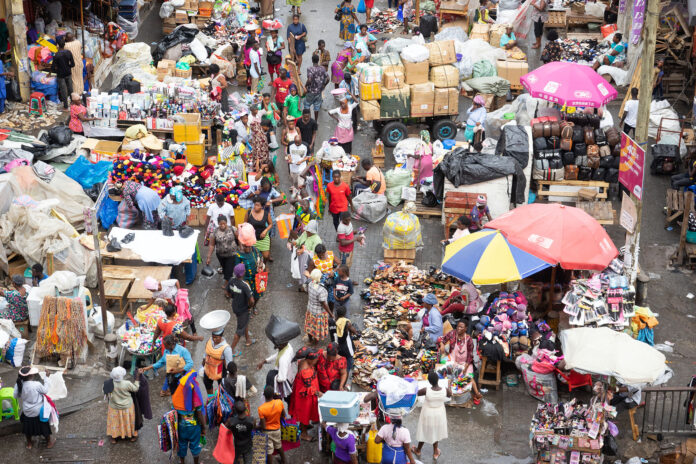…as sector’s recovery is still below pre-pandemic levels
The country’s informal sector is still struggling to recover from ravages of the pandemic, as data from the Ghana Statistical Service (GSS) shows the sector – which had otherwise been growing impressively – is trailing the formal sector.
The data show that in the first quarter of this year, the informal sector grew by 0.7 percent compared to 4.4 percent for the same period of 2020. The data further show the sector has seen significant disruptions in its activities, as it contracted 5.7 and 4.5 percent respectively in the second and third quarters of 2020 compared to the overall economy’s contraction of 5.7 and 3.2 percent respectively in the same period. Even in the fourth quarter of the same year, when the economy grew by 3.3 percent, the informal sector saw a paltry growth of 1.5 percent.
But when compared to the pre-pandemic period, the informal sector’s growth either overtook overall economic growth or was slightly below it. For example, in the first quarter of 2019 general growth of the economy was 5.9 percent whereas the informal sector’s growth was 6.3 percent. Then in the last quarter of that same year, while the overall economy grew by 6 percent, the informal sector’s growth was 5 percent. However, this is not the case since the pandemic hit the country.
What this indicates is that the informal sector, which is the largest employer in the economy, has been more badly hit by the pandemic than the formal sector. The formal sector seems to be recovering more quickly after many of the restrictions imposed by government were lifted last year.

What can best explain this is that the formal sector seems more prepared to deal with the new normal than the informal sector. Businesses in the formal sector were able to devise innovative strategies to meet customer’s demands, while those of the informal sector couldn’t transition to the new normal of doing business with increased digitisation and technology.
Most companies in the formal sector had the financial muscle to adapt to the changing environment and went on the offensive with digitisation by employing technologies that could allow them to satisfy their customers’ new taste for products and services which limit human interaction – especially in the era of social distancing and other protocols prescribed to limit spread of the coronavirus disease.
Unfortunately, most players in the informal sector did not have the technical and financial capacity to adapt in the changing environment, as these digital platforms require knowledge and finances to operate. Most businesses in the sector are of micro-size and operate on a hand-to-mouth basis, and hence cannot raise the needed finances to invest in digital platforms.
This line of reasoning is supported by the Director at the Institute of Social, Statistics and Economic Research (ISSER) of the University of Ghana, Prof. Peter Quartey – who said in an earlier interview with the B&FT that the slow recovery of the informal sector can be attributed to the general economic slowdown and the sector’s inability to adjust to the new normal like the formal sector did; especially when the life style of many Ghanaians has changed.
“Due to the general economic slowdown, which has resulted in a high cost of living, people have cut down on spending. And once the informal sector is part of the economy, it will also be affected. And again, some of the services the informal sector provide are now available online. For example, people no longer feel comfortable to buy something and eat in traffic when they can place an order online for it.
“The informal sector must be adaptive to change. COVID has taught all of us lessons. Now, the way we do business is changing. People are moving toward digital now, and so those in the informal sector must start moving toward that direction. For example, if you are into distribution, you can now start marketing your products online rather than carry it around to people,” he said.










